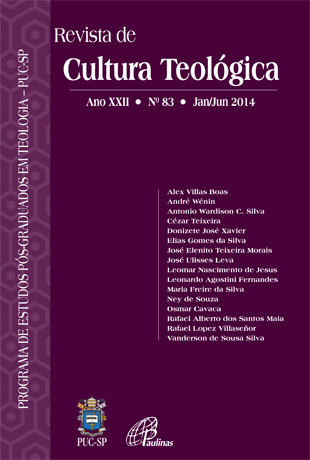The Meaning of Love: a contemporary and theological comparison of their occurrence and meanings
DOI:
https://doi.org/10.19176/rct.v22i83.19235Keywords:
Love, Relationship, Feeling, Scripture, VirtueAbstract
Man is characterized as a rational being that connects with those that are part of his social conviviality, in other words, he possesses the capacity to develop interpersonal relationships. During these relationships several emotions are experienced, developed, and transformed and one of those is love. Certainly love is a fundamental and essential position in the human life, because man, in a certain way, is an incomplete creature if unable to feel or practice this emotion. The absence of love in life totally affects the structure of this complex creature whether physically, emotionally, or spiritually because love is present in an active way in these spheres of the human life. In that case there is a need to understand love’s functions in three knowledge areas: First, in the physical area, understanding that which represents love for the man in his relationships. Second, in the emotional area its contribution for the formation of the human character (social, emotional or sexual). Third, in the spiritual area, is the importance of love through the biblical vision, with its definitions and effects in the life of the church and of the Christian. The biblical context shows a type of much deeper love than that which the modern man understands for love. This understanding starting from the Old Testament was deepened and transformed in the measure in that the pages of the New Testament were written. It can be said that God wants to take that which the man understands of love and transform it into a virtue that is not limited to a simple momentary feeling - into something of the “size” and of the “depth” of God.Metrics
Metrics Loading ...
Downloads
Published
2014-08-08
How to Cite
Maia, R. A. dos S. (2014). The Meaning of Love: a contemporary and theological comparison of their occurrence and meanings. Revista De Cultura Teológica, 22(83), 195–213. https://doi.org/10.19176/rct.v22i83.19235
Issue
Section
Artigos


